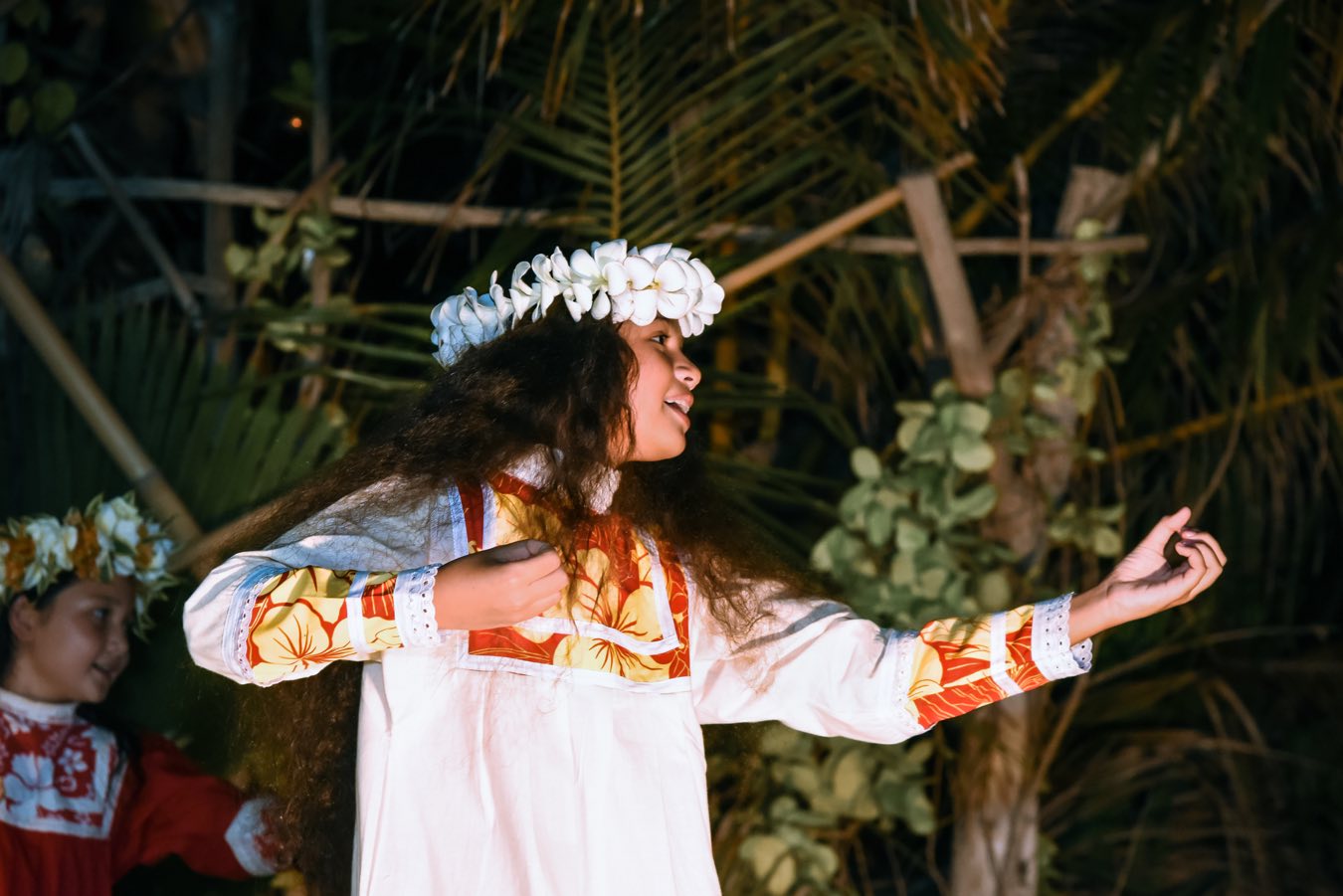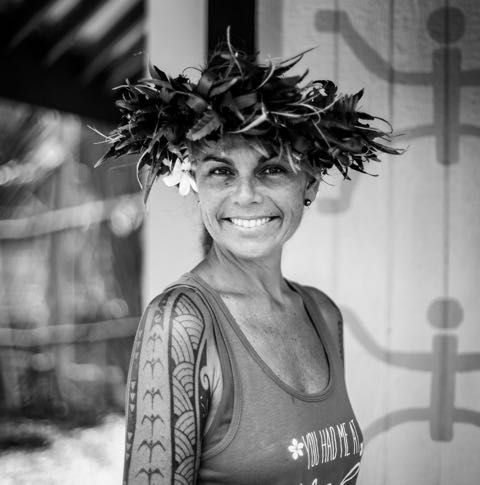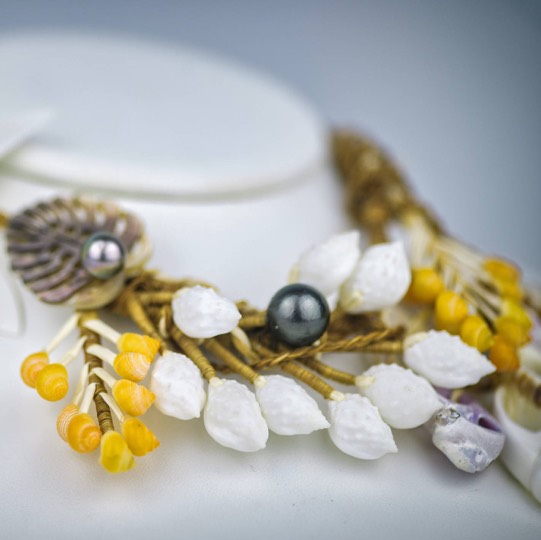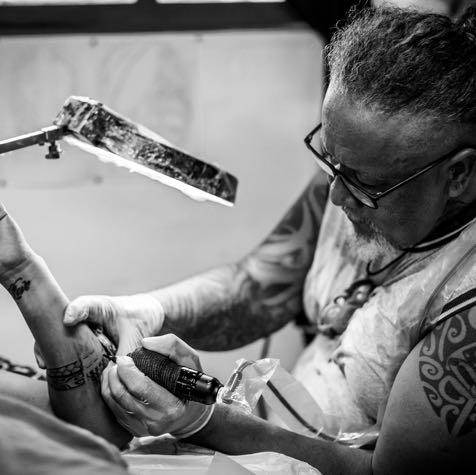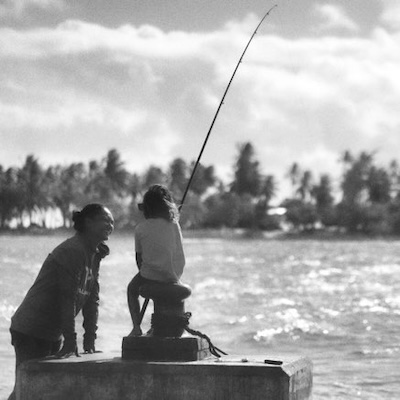written by Gaëlle Poyade for the 2024 edition

Nathalie Teura Manaois: dance flowing in the body


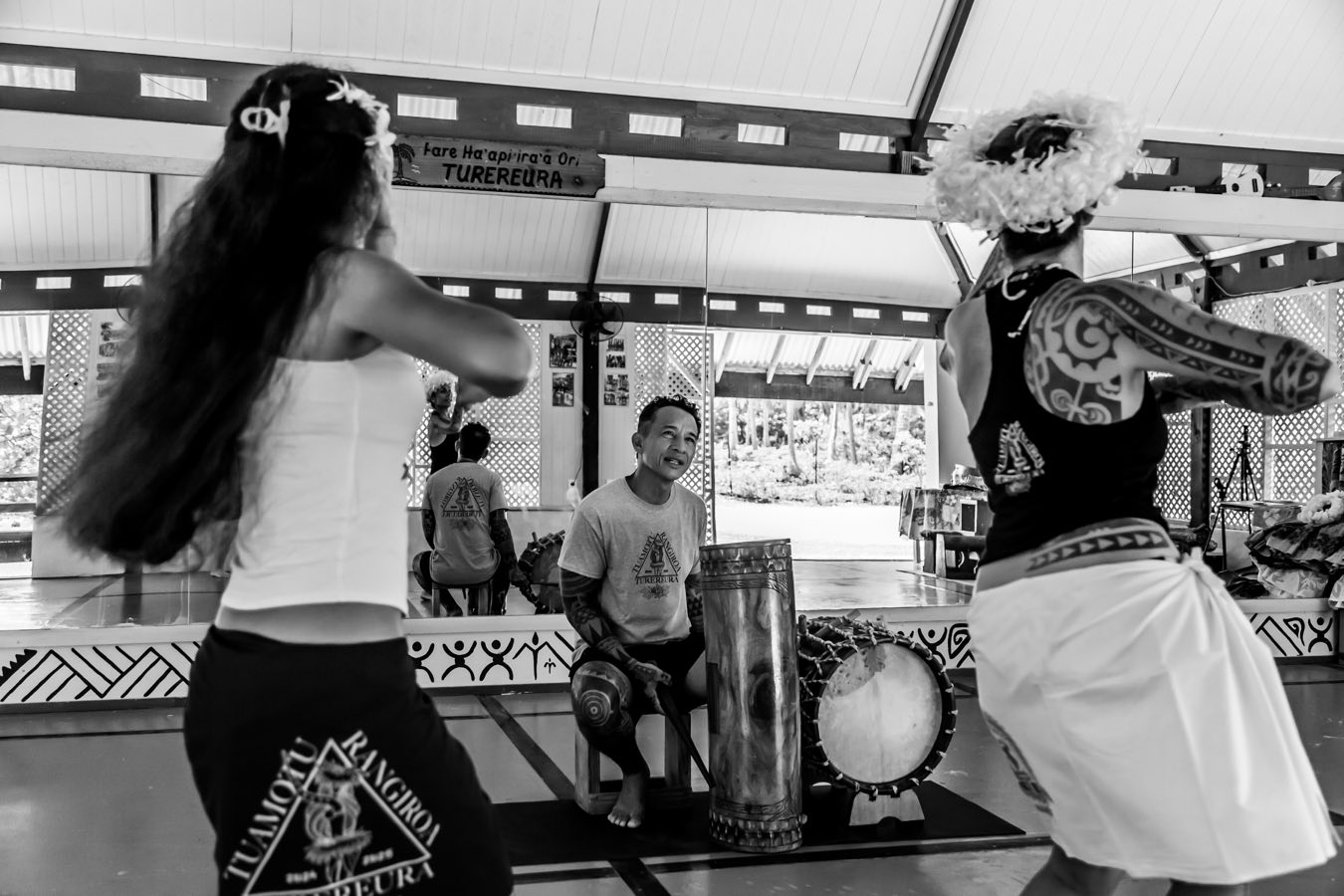
From her passion, Nathalie Teura Manaois has made a mission: to transmit the ori tahiti as she received it, 20 years earlier. The dance school that she founded with her partner in Avatoru perpetuates traditional steps and gestures while offering its students the opportunity to travel outside the coral ring.
The son of an Italian father and a Paumotu mother, Nathalie was born in Noumea but grew up in Tahiti. 'When I was little, I always admired the Heiva festivals, drawn to the sounds of the to’ere, this characteristic Polynesian slit drum. Around the age of 16, I felt a call to the ori tahiti. I started dancing, dancing, so much so that I gave up my studies.'
In 1996, Nathalie competed for the first time the Heiva with the legendary Te Maeva troupe, led by Coco Hotahota. The man, known for his attachment to traditions, became her mentor, leaving his mark on the young athlete's style.
She began a professional career, dancing tirelessly in Polynesian hotels, at parties and on international tours. Alongside her performances, Nathalie discovered the profession of teacher by assisting the choreographer Dadou Paillé in his Orirau school, located in Pape’ete. For 10 years, she taught children all the movements specific to the ’ōte’a and ’aparima.
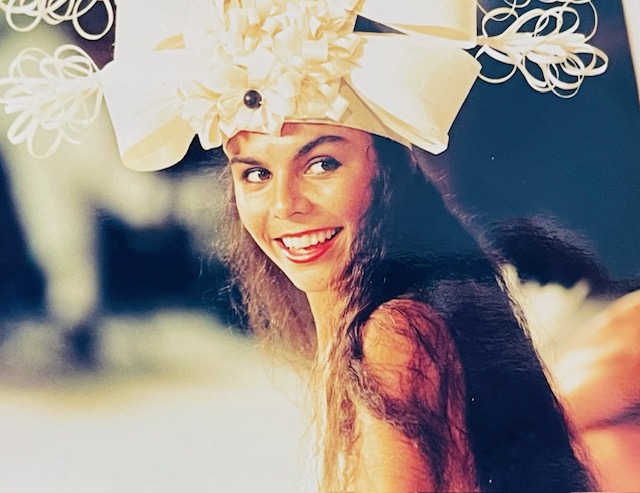
It was during a tour in the United States in 2003 that she met her future husband, Hawaiian Anthony Waipa Manaois, founder and musical director of 'Ote'a 'Api. While their respective troupes were twinned, the young couple got married the following year. After a few trips back and forth between Tahiti and California, Nathalie and Anthony settled on the ancestral lands of the future mother, in Rangiroa.
Quite naturally, the couple decided to create, in 2009, a Tahitian-Hawaiian dance school in Avatoru; they named it Turereura, after their newborn daughter. Anthony, raised in a family marked by music and dance, teaches hula, ukulele and traditional percussion while Nathalie gives classes in ori Tahiti.
Today, the school welcomes more than 100 students, aged from 4 to over 50 years old throughout the week. Even the men, supervised by Anthony, are well represented with about ten adults and a group of tamāroa made up of 22 motivated boys.
'Turereura is one of the most important leisure centres on the atoll with the judo school; it participates in local life since the children perform in public during corporate days, explains Nathalie who is keen to liven up the island. Dance schools are rather rare in the Tuamotus, so the population feels lucky to have a dynamic one.'
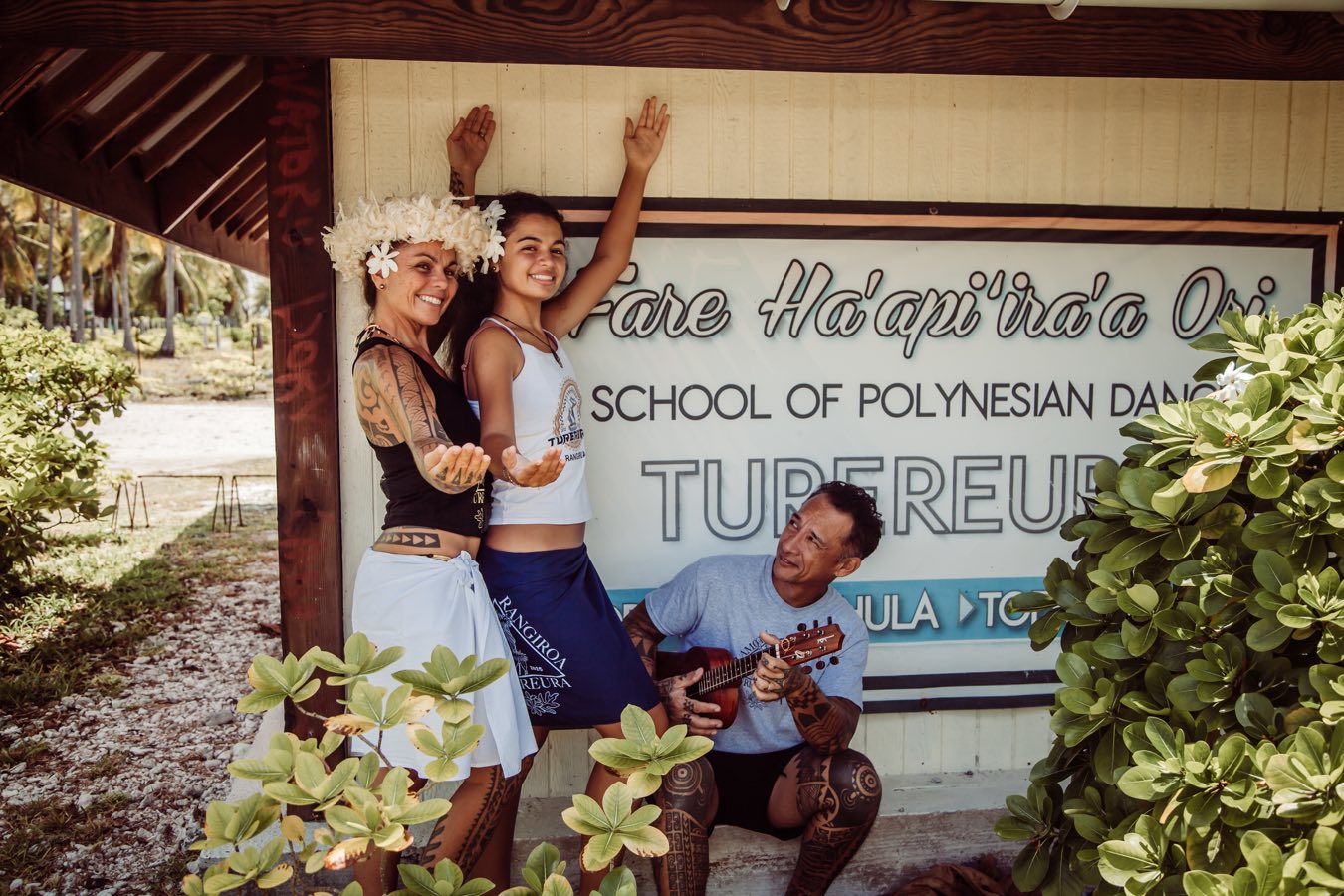
The teacher feels this social dimension deeply when she spends hours with her students who practice living together. 'Dancing is taking care of your body, sharing a moment with others by getting to know your partners. Through the ’ōte’a and ’aparima, we also discover the history of our ancestors.'
This 'school of life' serves the poorest children by taking them on trips. Every two years, Turereura’s leaders organize a cultural and artistic trip for around twenty children from Rangiroa. Supervised by around ten adults, some have already flown to Makatea, to the United States, and in particular Hawaii in July 2024.
'I love seeing their eyes light up when they climb into such a big plane for the first time in their lives. For two weeks, they discover a completely different way of life. Plus, during the festivals we perform at, they feel proud to represent their island abroad,' the teacher says. Nearly 80 students from the school experience this honor every year in Tahiti for a weekend in June, during the Ta'upiti ana'e. Despite its remoteness and the organizational efforts for such a trip, the Rangiroa troupe never misses an edition of the Heiva des écoles in order to compete on the To'atā stage alongside around forty other establishments.
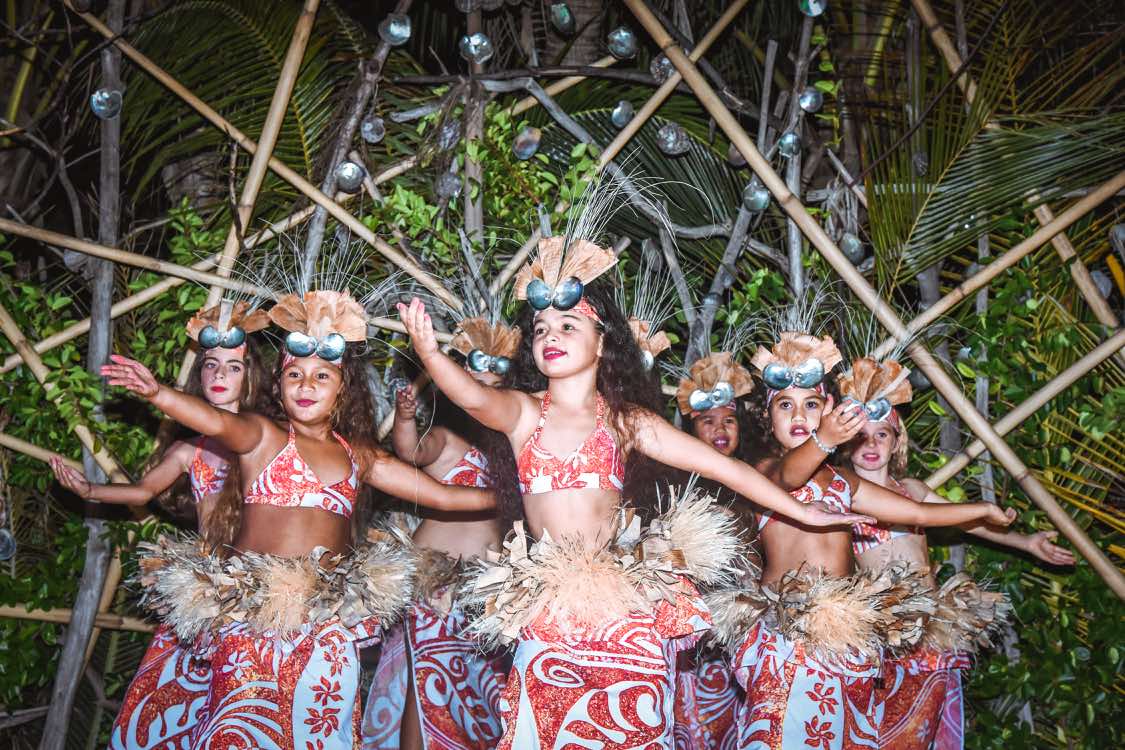
This openness to the world reinforces Nathalie’s belief in the importance of preserving Polynesian traditions by bringing them to life every day. Every day, the costume designer reconnects with an ancient craft, making shell necklaces, sewing, painting pareos or making outfits from kere, the fibrous bark that comes off the trunk of coconut trees. 'In the Tuamotus, we live in the middle of nature that occupies us intensely. We must never forget where we come from because remembering our origins, our past, our customs helps us live better,' says Nathalie Teura Manaois.
The message seems to have gotten through to Turereura, Nathalie and Anthony's daughter. The high school student is in fact engaged in studies focused on world dances, ori tahiti and the arts. Enough to ensure the continuity of the school that bears her first name.
